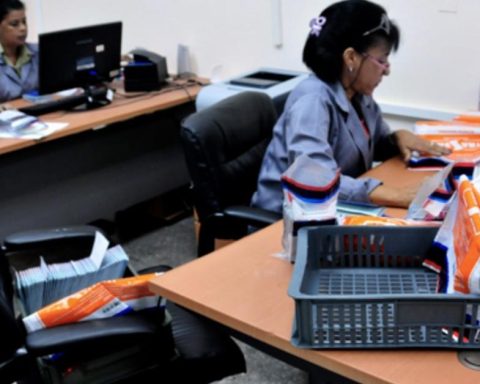The elements of the Federal Court of Justice waited for the determination of the Supreme Court of Justice of the Nation (SCJN) on the controversial Judicial Reform.
“A consensus was reached that on Monday, November 11, 2024, all work in the jurisdictional bodies will resume, with the purpose of adequately preparing the return to work, which implies the resumption of the deadlines and terms proceedings from that date,” says the agreement they reached.
“Jointly, the owners and workers reiterate our commitment to society in providing a public service that enshrines the principles of judicial independence and division of Powers as guarantors of our rule of law and democracy,” he adds.
At the end of October, the Federal Judicial Council ordered all courts to return to work.
The plenary session of the Supreme Court did not obtain the necessary votes on Tuesday to invalidate part of the Judicial Reform approved in September by the ruling party, clearing the last obstacle that weighed on the controversial constitutional amendment, which has scared the markets and frightened investors. .
The Court needed at least eight votes in favor of the draft sentence, presented by opposition parties, but it only had seven of the 11 ministers, so it could not suppress the election of judges and magistrates by popular vote, one of the core points of the constitutional reform promoted by former president Andrés Manuel López Obrador.
The ruling also sought to invalidate the figure of faceless judges, the mass removal of judges and magistrates, and the unchallengeability of sentences from the Disciplinary Court, a new entity created with the reform.
The discussion in the country’s highest judicial body threatened to unleash a clash of powers, after Congress, dominated by the ruling party, days ago approved a constitutional reform to ensure that the amendments to the Magna Carta cannot be challenged. In addition, he asked the Court to dismiss the draft sentence.
“There is no body in our country that is above the Constitution,” said the presiding minister of the Court, Norma Piña.
“It is unacceptable to believe that the Constitution allows a set of bodies created by itself to use democratic mechanisms to destroy democracy and the Constitution itself,” he added, before voting in favor of the motion.
After the vote, Piña declared a recess in the session to, once it resumed, decide whether at least eight or six votes were necessary to invalidate part of the Judicial Reform.

















